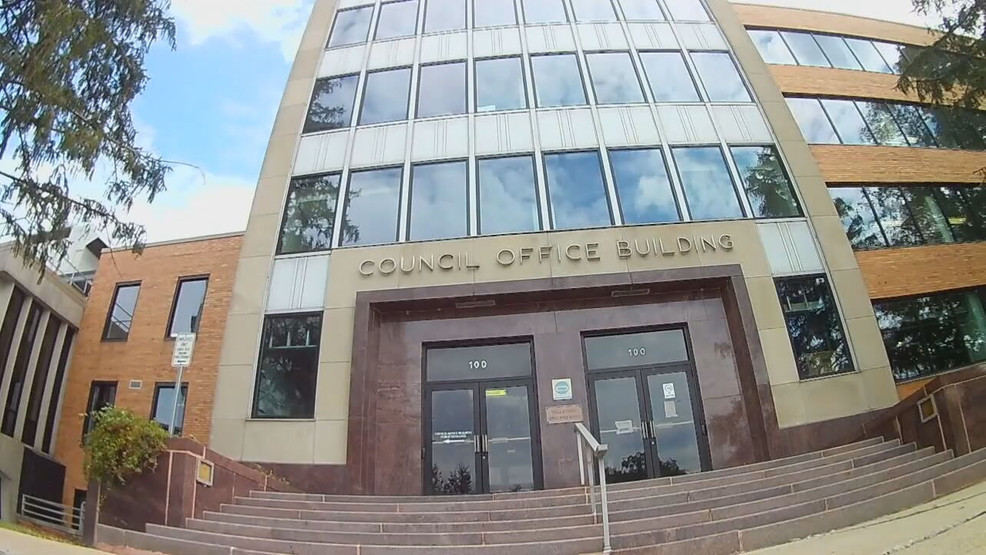
MONTGOMERY COUNTY, Md. (7News) — As certain juvenile crimes continue to spike, some Maryland lawmakers are pleading for patience with recently passed juvenile justice reforms.
On Tuesday, state Del. Charlotte Crutchfield, D-Montgomery County, and state Sen. Will Smith, D-Montgomery County, spoke with the Montgomery County Commission of Juvenile Justice.
They stood by recently passed legislation that has been at the center of contentious debate while juvenile crimes have become highly publicized.
“Juvenile justice is about reform. It’s not about punitive actions. It’s about trying to service and provide those necessary things that children will need,” Crutchfield said. “There appeared to be a lot of concern about things not working when in actuality, a lot is working.”
MORE | Clarksburg teen accused of shooting into Germantown home arrested, tried as adult
Smith added: “All of these will make for a more equitable and just criminal justice system, especially with regards to juvenile justice, but will also make us safer.”
In 2022, Maryland lawmakers passed the Juvenile Justice Reform Act, which prohibits criminally charging children younger than 13 years old unless it’s for violent crimes; bans children younger than 10 from being criminally charged at all and allows for only probation for juveniles who commit crimes.
That same year, state lawmakers also passed the Child Interrogation Protection Act, which prohibits children from being interrogated about crimes they’re accused of committing or have knowledge about.
“We really do believe in the reforms we’ve put in place, and we really do believe they will make us a better state moving forward. A lot of them just need time to be implemented,” Smith said.
According to a study released in September by the Maryland Department of Juvenile Services, total juvenile crime is up 15 % compared to fiscal year 2022, but up by 74 % compared to 2021. Violent crime is up 18 %, or 30 % compared to 2021.
Carjackings have increased by 85 % and handgun violations have more than quadrupled.
“There are significant spikes in certain areas, like carjacking and with gun possession and gun violence. Those are things we need to talk about and talk about why they’re not being adequately addressed under the reforms we have put into place,” Smith said. “We’re going to work with our public defenders and we’re going to work with our state’s attorneys, and we’re going to work with our law enforcement officers to figure out why what we put in place is not being implemented. Some legislative tweaks that will be done in concert with the Department of Juvenile Services and our public defenders and state’s attorneys, but I am not interested in rolling back the reforms we put in place last year.”
However, earlier this month, Smith expressed stronger language when asked by 7News Maryland Bureau Chief Brad Bell if he was considering changes to these laws.
“Other offenses that are not categorized as a crime of violence are also serious. I think it’s maybe time to look at those crimes,” Smith said.
Tuesday’s Montgomery County meeting came exactly one week after Republican state lawmakers held a press conference to announce a package of legislation, some of which aimed directly at youth crime.
“The Juvenile Justice Restoration Act is a response to loud outcry from the public, law enforcement, and state’s attorneys,” said state Del. Jesse Pippy, R-Frederick County.
This bundle of legislation would make it easier to interview juveniles who are witnesses or suspects of crimes, require children younger than 13 years old who use guns in their crimes to be under Department of Juvenile Services jurisdiction, and require juveniles arrested for the same non-violent crime three times or more to also be under the jurisdiction of the Department of Juvenile Services.
However, Democratic lawmakers are pleading for patience.
“This legislation needs to be given an opportunity. Just like a lot of legislation, there may be things that need to be tweaked. There may be things that we could look at differently. We also recognize there are a lot of services that need to be provided,” Crutchfield said. “Maybe there is some means of coming together and hopefully try to understand and resolve some of the things that are going on.”
Smith added: “The laws we put in place are going to take a couple of years to see the fruit of the foundation we have laid and the seeds we’ve planted.”
Maryland’s 2024 legislative session begins January 10.
This post was originally published on this site be sure to check out more of their content.






